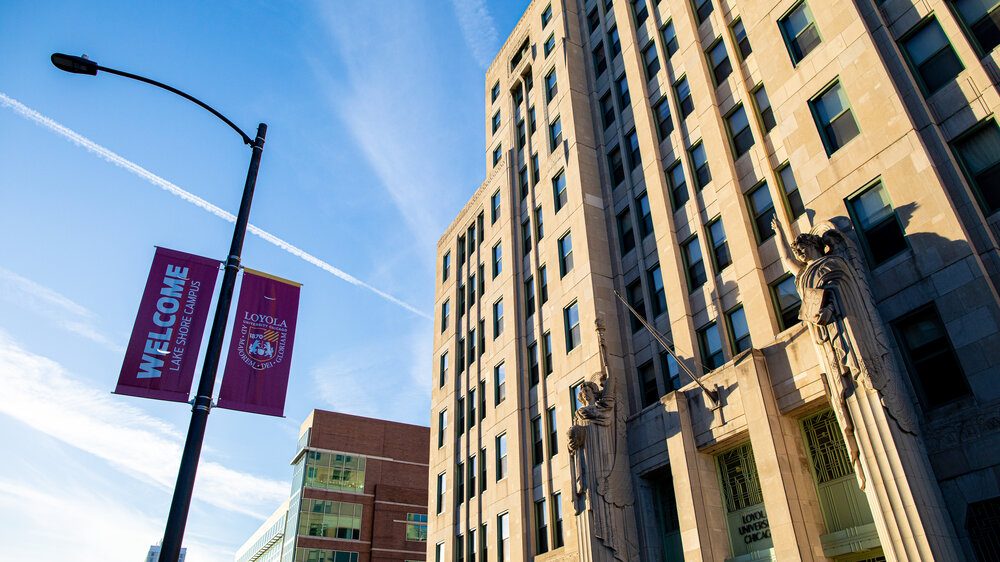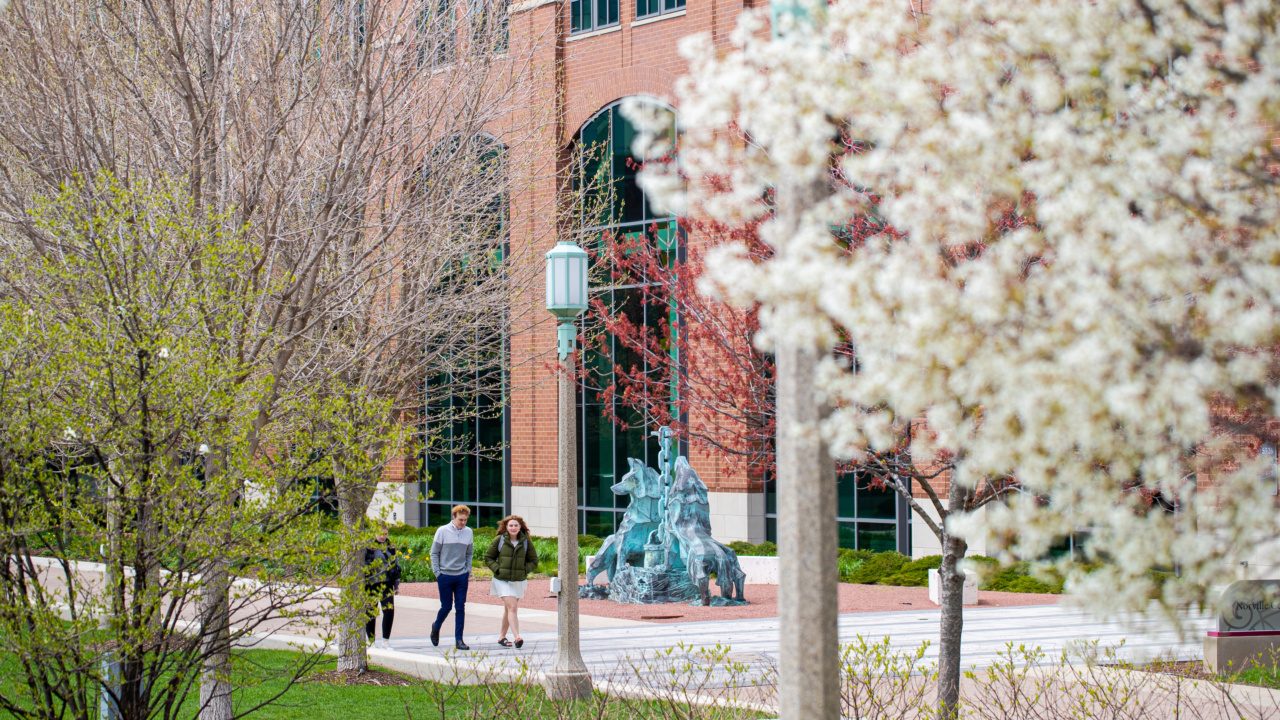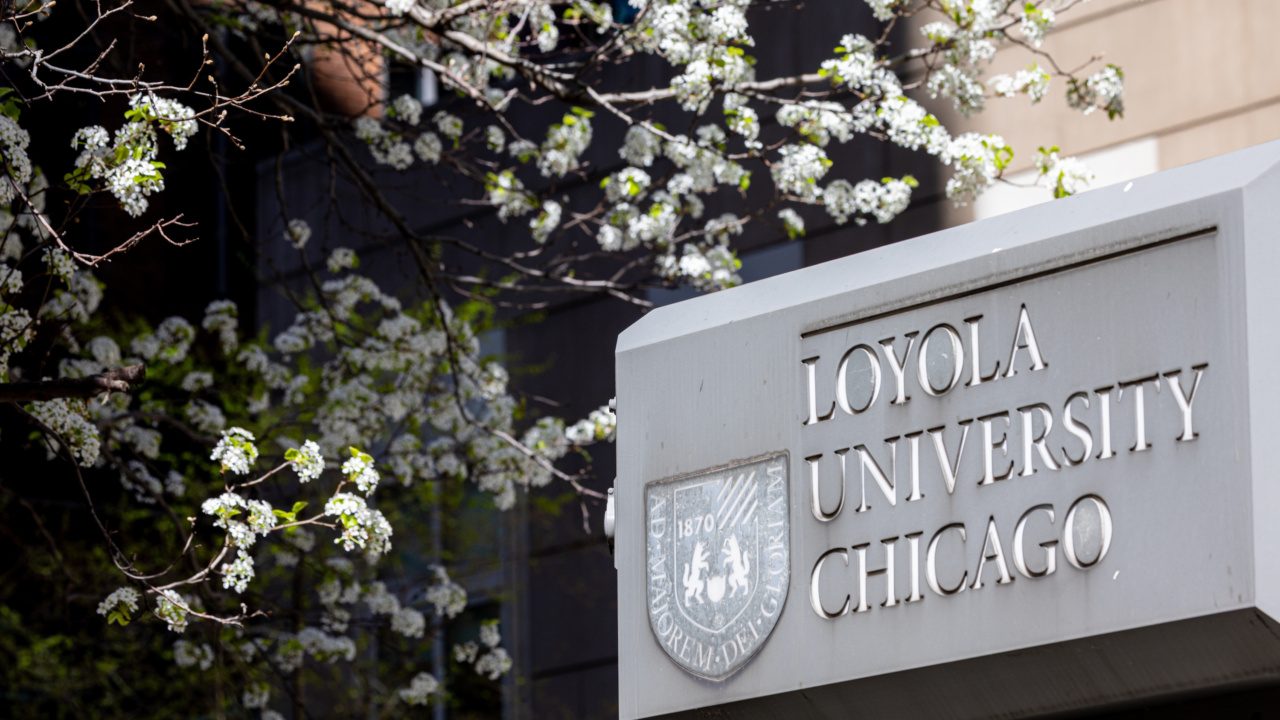College of Arts and Sciences Faculty Awarded NEH Fellowships

CHICAGO – February 1, 2024
Two faculty members in the College of Arts and Sciences at Loyola University Chicago have been awarded 2024 National Endowment for the Humanities (NEH) fellowships, a competitive and prestigious grant program.
Alice Weinreb, associate professor in the Department of History, and Olivia Wolf, assistant professor in the Department of Fine and Performing Arts, were each awarded fellowships of $60,000 to support their research. Weinreb and Wolf are among 82 scholars across the country to be awarded one of the NEH’s prestigious fellowships. This year’s fellowships were extremely competitive at an acceptance rate of 8%, underscoring the rigor and excellence of Weinreb and Wolf’s scholarship and academic pursuits at Loyola.
“Congratulations to Drs. Weinreb and Wolf on being awarded one of the most prestigious and competitive fellowships available to scholars in the humanities,” said Peter J. Schraeder, dean of the College of Arts and Sciences at Loyola University Chicago. “To have not one, but two faculty receive this outstanding honor in the same year is a testament to the impressive work being conducted by our excellent humanities faculty within the College of Arts and Sciences.”
This year’s awards follow previous NEH fellowships awarded to College of Arts and Sciences faculty members including the 2020 project “Amy Lowell Letters” by Melissa Bradshaw, Department of English, and 2023 project “Humanizing STEM Education: Navigating Future Challenges Through Integrated Instruction” led by Michael Burns, Department of Biology, and Joseph Vukov, Department of Philosophy.
Looking back to forge ahead in our mental health crisis
Weinreb will leverage her fellowship to support her new project constructing a transnational history of the medical and cultural construction of eating disorders as a category of mental illness in the last decades of the twentieth century.
“My research explores how discussions over diagnosis, treatment, and causality of anorexia, bulimia, and compulsive overeating shaped medical, feminist, and popular vocabularies of race and gender between 1970 and 2000,” explained Weinreb.
Studying the history of these increasingly pervasive disorders will contribute to a greater understanding of our current epidemic and how to support those impacted moving forward.
“As a historian, I am convinced that all fields, including science and medicine, need to know about their history in order to enact meaningful change,” said Weinreb.
Weinreb highlights that many of the current conversations scientists and medical professionals are having on mental illness and eating disorders were already happening in the 1970s. In time, they were forgotten before reemerging in recent years, but treatment outcomes have not improved over the decades.
“Because they are unaware of this past, they recreate the wheel, so to speak,” explained Weinreb. “The medical problems we’re facing today did not emerge out of a vacuum. By applying an analytical gaze on primary sources of the past, we can identify and suggest new ways to understand our current mental health crisis.”
Weinreb’s research emerged out of key support from Loyola during the initial months of the COVID-19 pandemic. She was a recipient of a Loyola Special Grant, a one-time opportunity to help faculty make up work during the lockdown.
“Since then, Loyola has been generous in awarding me numerous small grants that enabled me to carry out local and international archival research, work extensively with over a dozen Loyola student interns and researchers, and even complete my NEH fellowship application,” recounted Weinreb.
“The fact that Loyola faculty have received two NEH grants this year reflects the efforts that the University has made to support faculty research, not only in STEM but in the humanities. I’m so grateful.”
Weinreb plans to use the funds from her fellowship to start processing the archival sources on the history of psychiatry that she has been collecting over the past three years and begin drafting her book.
In addition to her book, Weinreb was invited to present her project at the National Library of Medicine for the 15th Annual James H. Cassedy Lecture in the History of Medicine on Thursday, February 8, 2024. It will be available to watch via livestream here.
How migration shapes transnational art and agency
Wolf, whose expertise lies in art history, will leverage the fellowship funds to begin her research and writing examining the influence of the Arab diaspora of Syrian and Lebanese communities on the structures and styles of early to mid-20th century Argentinian architecture and their contributions to Latin American modernism.
“My research highlights how structure and style of Arab-Argentinian institutions, as well as the artists and networks associated with them, acted as powerful vehicles for self-representation and critical diasporic debate,” explained Wolf.
Wolf will analyze how artists and institutions contributed to a transnational production of visual culture through elements like public monuments, cultural patrimony, and even modern art between Latin America and Levant.
“By tracing patterns of patronage by diverse diaspora communities from the Levant in modern Argentina, we can more clearly understand how art and architecture influenced by Syrian and Lebanese communities served as a critical tool for their social, economic, and political mobility in a proudly Euro-centric nation where their migration was first contested.”
In broader terms, Wolf’s work will contribute to a greater understanding of the vital role of diaspora communities from the Levant across Latin America in crafting what is now known as global modernism. What’s more, the diaspora’s contributions to art and architecture from the early 20th century still play a key role in new, ongoing waves of Syrian migration to Argentina today.
“Bridging the gap between migration studies and the humanities, this project will leverage interdisciplinary methodologies such as architectural documental and archival research,” said Wolf. “These sources will help highlight the agency of immigrant artists, architects, and patrons in the shaping of transnational identities, styles, and modern movements in the southern cone.”
As a recent addition to Loyola’s faculty, the College of Arts and Sciences’ summer research stipends and start-up funds have provided Wolf with the support she needed to advance on initial writing and research for her upcoming book as well as travel to key sites in Northwest Argentina for field work.
“This generous support was so helpful in getting my research where it needed to be in order to secure this grant,” said Wolf. “This fellowship will provide one of the most valuable resources a faculty member can ask for – time for research and writing – to advance my book project toward publication.”
In addition to funding and recognition for her personal work, Wolf is excited by the honor and recognition this will bring to Loyola.
“It is a joy to share the honor with my colleague Dr. Weinreb and to play a part in representing the rigorous work taking place in the humanities at Loyola by way of this national recognition.”
Learn more about Weinreb and Wolf’s work. Visit the National Endowment for the Humanities for more information regarding the organization’s grants and fellowships.
****
About Loyola University Chicago
Founded in 1870, Loyola University Chicago is one of the nation’s largest Jesuit, Catholic universities, with nearly 16,600 students. The University has four campuses: three in the greater Chicago area and one in Rome, Italy, as well as course locations in Vernon Hills, Illinois (Cuneo Mansion and Gardens), and a Retreat and Ecology Campus in Woodstock, Illinois. The University features 15 schools, colleges, and institutes. Ranked a leading national university by U.S. News & World Report, Loyola is also among a select group of universities recognized for community service and engagement by prestigious national organizations including AmeriCorps and the Carnegie Foundation. To learn more about Loyola, visit LUC.edu or follow us on Twitter via @LoyolaChicago.
About the College of Arts and Sciences
The College of Arts and Sciences is the oldest of Loyola University Chicago’s 15 schools, colleges, and institutes. More than 150 years since its founding, the College is home to 20 academic departments and 33 interdisciplinary programs and centers, more than 450 full-time faculty, and nearly 8,000 students. The 2,000+ classes that we offer each semester span an array of intellectual pursuits, ranging from the natural sciences and computational sciences to the humanities, the social sciences, and the fine and performing arts. Our students and faculty are engaged internationally at our campus in Rome, Italy, as well as at dozens of University-sponsored study abroad and research sites around the world. Home to the departments that anchor the University’s Core Curriculum, the College seeks to prepare all of Loyola’s students to think critically, to engage the world of the 21st century at ever deepening levels, and to become caring and compassionate individuals. Our faculty, staff, and students view service to others not just as one option among many, but as a constitutive dimension of their very being. In the truest sense of the Jesuit ideal, our graduates strive to be “individuals for others.” For further information about the College of Arts and Sciences, please visit our website.


